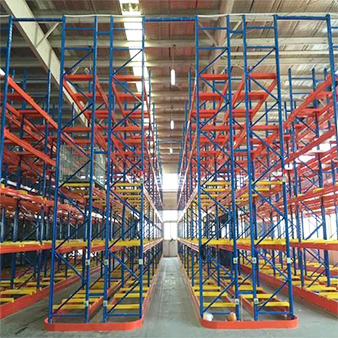Preventing moisture, deformation, and other problems with storage shelves involves proper planning, maintenance, and environmental considerations. Here are some strategies to help you avoid these issues:
Choose Appropriate Shelving Materials:
Select materials that are less susceptible to moisture and deformation. For example, stainless steel, plastic, or coated wire shelves are more resistant to moisture than wood.
Moisture Barriers:
If you're using wooden shelves, consider adding moisture barriers such as sealants or laminate coatings to protect the wood from humidity and spills.
Location and Environment:
Place shelves in a dry and well-ventilated area to minimize exposure to moisture. Avoid installing them in damp or humid locations, such as basements, bathrooms, or near sources of water.
Use Dehumidifiers:
In areas prone to high humidity, use dehumidifiers to reduce moisture levels. This can help protect shelves and the items stored on them.
Proper Ventilation:
Ensure good airflow around the shelves to prevent moisture buildup. Avoid blocking vents or air circulation with stored items.
Regular Cleaning:
Clean and dust your shelves regularly to prevent the accumulation of moisture-absorbing particles. This is particularly important for wooden shelves.
Maintain Consistent Temperature:
Fluctuations in temperature can lead to condensation and moisture issues. Try to maintain a consistent room temperature.
Proper Spacing:
Avoid overloading shelves, which can lead to deformation and structural problems. Follow weight capacity guidelines provided by the manufacturer.

Use Shelf Liners:
Consider using shelf liners or non-slip mats to protect shelves and prevent items from directly contacting the shelf surface. This can help reduce the risk of moisture damage.
Avoid Direct Water Contact:
Keep shelves away from sources of water, like plumbing or leaking pipes. Be cautious when storing liquids, and use drip trays or containers to catch potential spills.
Regular Inspection:
Periodically inspect your shelves for signs of damage, warping, or deformation. Catching issues early can help prevent further damage.
Shelf Supports and Bracing:
If you notice that your shelves are starting to bow or deform, consider adding additional support brackets, vertical supports, or braces to reinforce the structure.
Organize and Declutter:
Organize your items efficiently, and regularly declutter to prevent overloading and excessive weight on the shelves.
Proper Assembly and Installation:
Follow the manufacturer's instructions for assembly and installation carefully to ensure the shelves are correctly and securely set up.
Keep Away from Direct Sunlight:
Prolonged exposure to direct sunlight can cause fading and deformation. Keep shelves away from windows or use UV protection.
By implementing these preventive measures and being mindful of the storage environment, you can significantly reduce the risk of moisture, deformation, and other problems with your storage shelves, ultimately prolonging their lifespan and maintaining the integrity of the items stored on them.